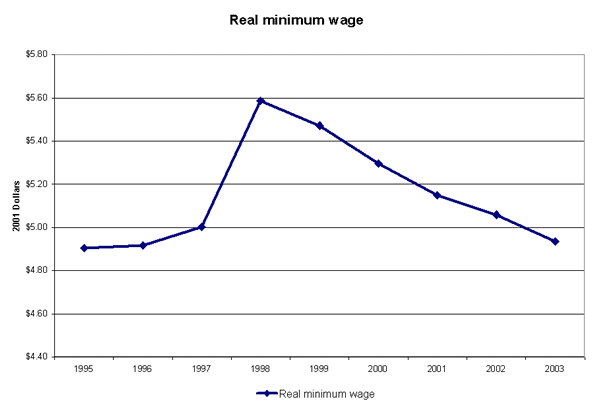A weekly presentation of downloadable charts and short analyses designed to graphically illustrate important economic issues. Updated every Wednesday.
Snapshot for May 8, 2002.
Minimum wage losing ground
In 1996-97, Congress and the Clinton Administration raised the value of the federal minimum wage from $4.25 to $5.15. Unless Congress acts soon, the value of that increase will disappear by next year.
Each year that Congress fails to raise the minimum wage, its buying power is eroded by inflation. The figure below shows the real value of the minimum wage from 1995 through next year (using Congressional Budget Office inflation projections for this year and next). By 2003, based on the CBO’s conservative estimates of inflation,* the real value of the minimum will have returned almost exactly back to its level prior to the last increase.

Despite the strong wage growth over the late 1990s, millions of workers, including many parents leaving welfare for work, depend on the minimum wage. Congress needs to move quickly in order to counteract the erosion of the last increase.
* CBO presumes inflation will rise 1.8% in 2002, although as of the first quarter of this year, inflation was rising at an annual rate of 3%. Were we to incorporate this higher rate of price growth into the figure, the value of the last increase would erode even sooner.
This week’s Snapshot by Jared Bernstein and Jeff Chapman.
Check out the archive for past Economic Snapshots.
